Revolutions / Global
Turning heads
From Belarus to Hong Kong, political uprisings were a feature of 2020. But 10 years on from the Arab Spring, it is clear that these heated movements don’t always result in real change. So what is the secret to success? And what can we expect in 2021?

Protesting in Kiev against Russian involvement in Belarus
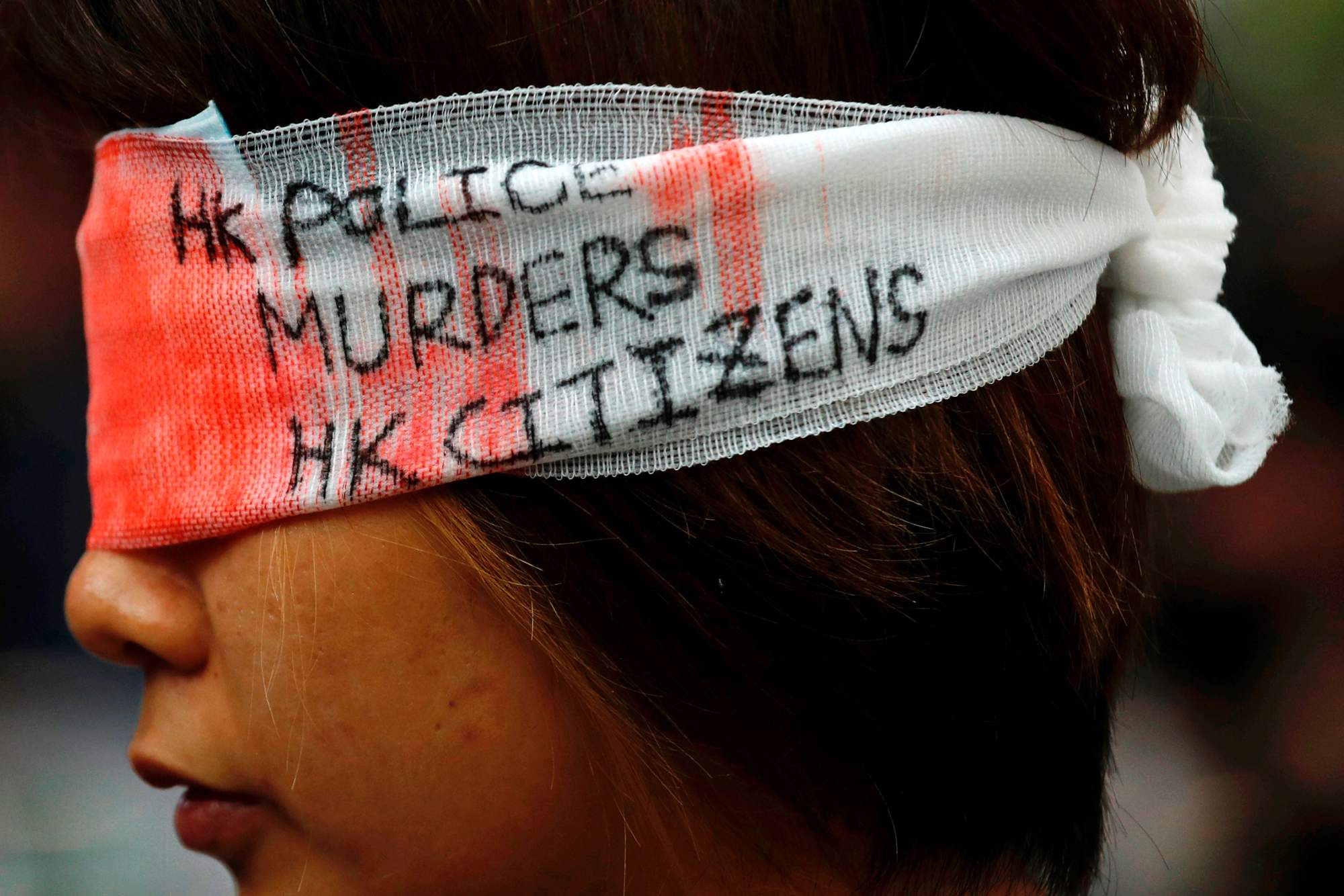
Making the unseen visible in Hong Kong
Ten years ago, “revolution” was the word on everyone’s lips. From December 2010, citizens flooded streets across the Arab world in their millions to protest against the dictators and military regimes that had ruled their lives.
A decade on, the hope kindled during the Arab Spring has long since died out. Regime crackdowns have given way to civil wars; deposed leaders have simply made way for equally authoritarian rulers. Hundreds of thousands of pro-democracy activists have been jailed; countless citizens killed.
But while the Arab Spring has served as a disheartening lesson about the hurdles to achieving swift change, populations around the globe have continued to rise up against undemocratic leaders. There are success stories among them: Sudan’s 2019 uprising toppled Omar al-Bashir; Armenia’s 2018 Velvet Revolution ushered in a new government without any bloodshed. But what makes one revolution fail while another succeeds?
It’s a question that is surely weighing on the minds of Belarusians at the moment. After 26 years of authoritarian rule under president Alexander Lukashenko, August’s election – widely believed to have been rigged – proved the tipping point for a vast swathe of Belarusians, who took to the streets for months of largely peaceful demonstrations.
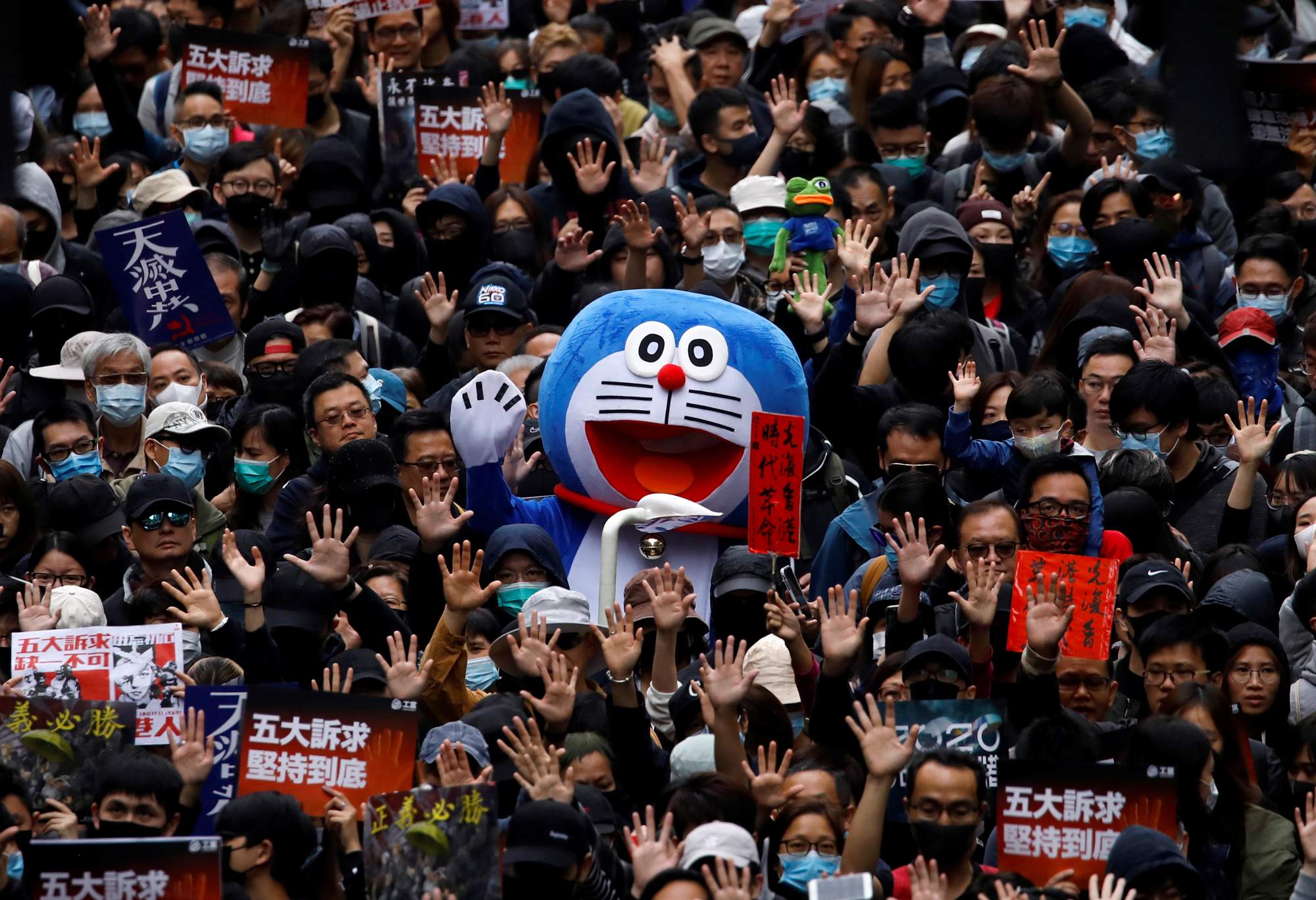
Standing out in Hong Kong
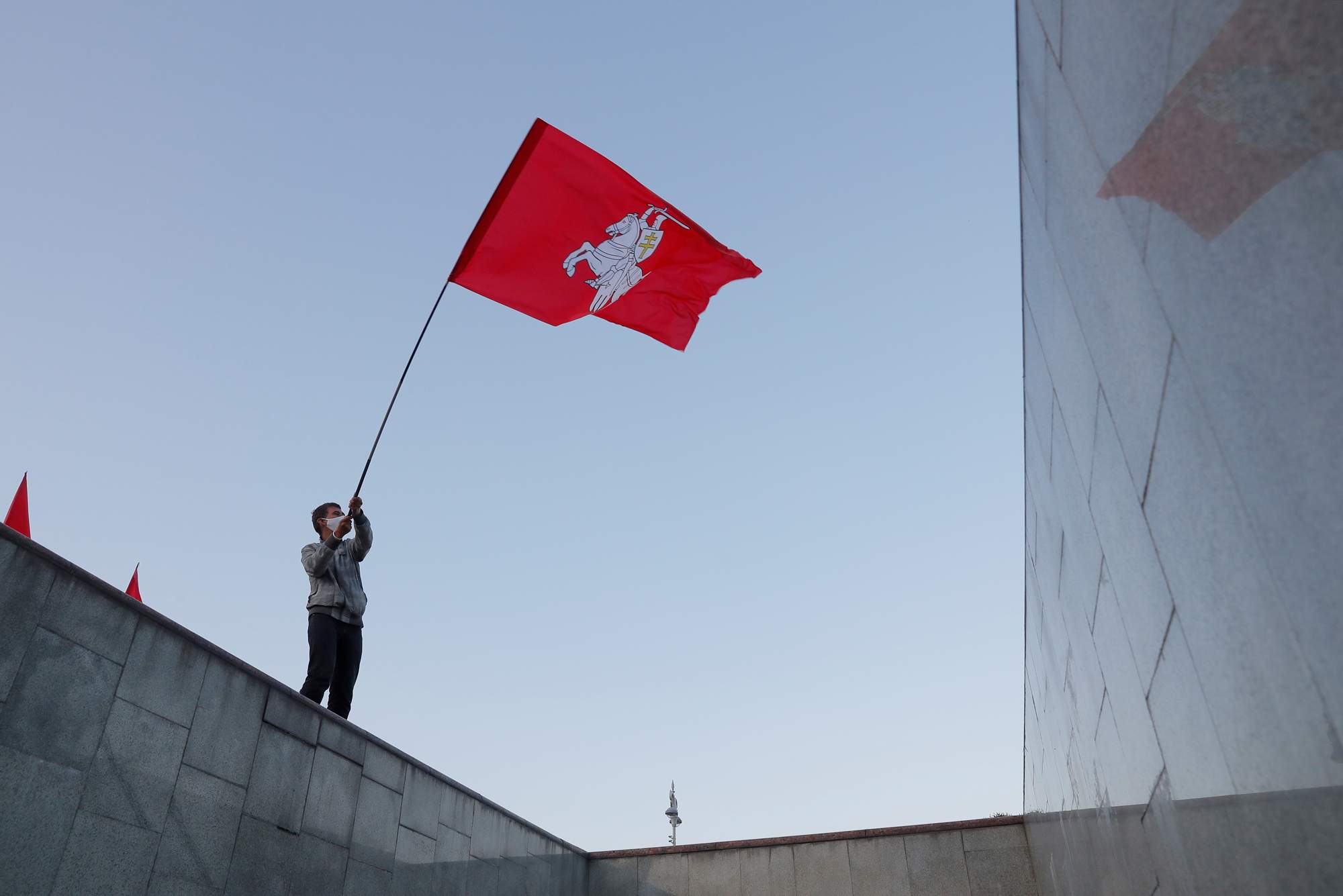
Setting the standard in Minsk
Belarus has already transformed political dissatisfaction and apathy into pro-democracy action – the first obstacle to achieving a revolution is starting. “Often the younger generation will become the vanguard of protest,” says Steve Crawshaw, the policy director of Freedom From Torture. Once a protest has the numbers, it’s about maintaining momentum. One of the foremost ways that can be achieved is by gaining international attention. With the eyes of the world watching, a movement not only receives further validation but authoritarian regimes are also put under pressure.
It’s a tactic that Joshua Wong, student activist and face of Hong Kong’s 2014 Umbrella Movement, knows well. As he told monocle in an interview in early 2020 while protests once again flooded the city, he knew the power of putting a face on the fight for democratic change. “With my popularity and how under the spotlight I am around the world, it is part of my role to let the voice of people in Hong Kong be heard in different countries,” he said.
Yet sometimes even widespread international support isn’t enough, especially once fatigue on the ground sets in. “That’s the hardest thing when protests have been going on for a long time,” says Crawshaw. “The longer it goes on, when you have a specific set of protests and especially in a repressive context – the more difficult it is.”
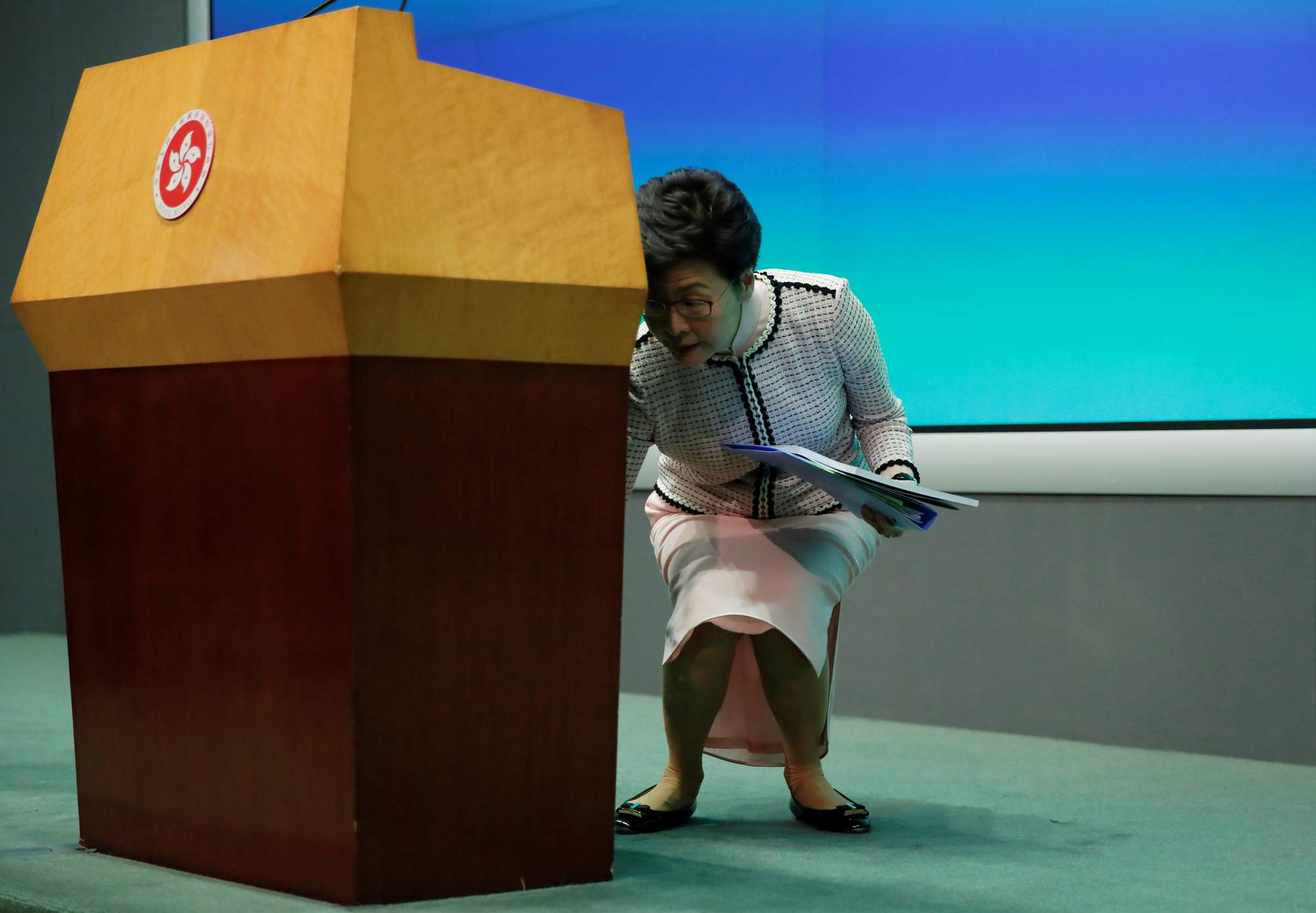
Hong Kong’s chief executive Carrie Lam was in the firing line
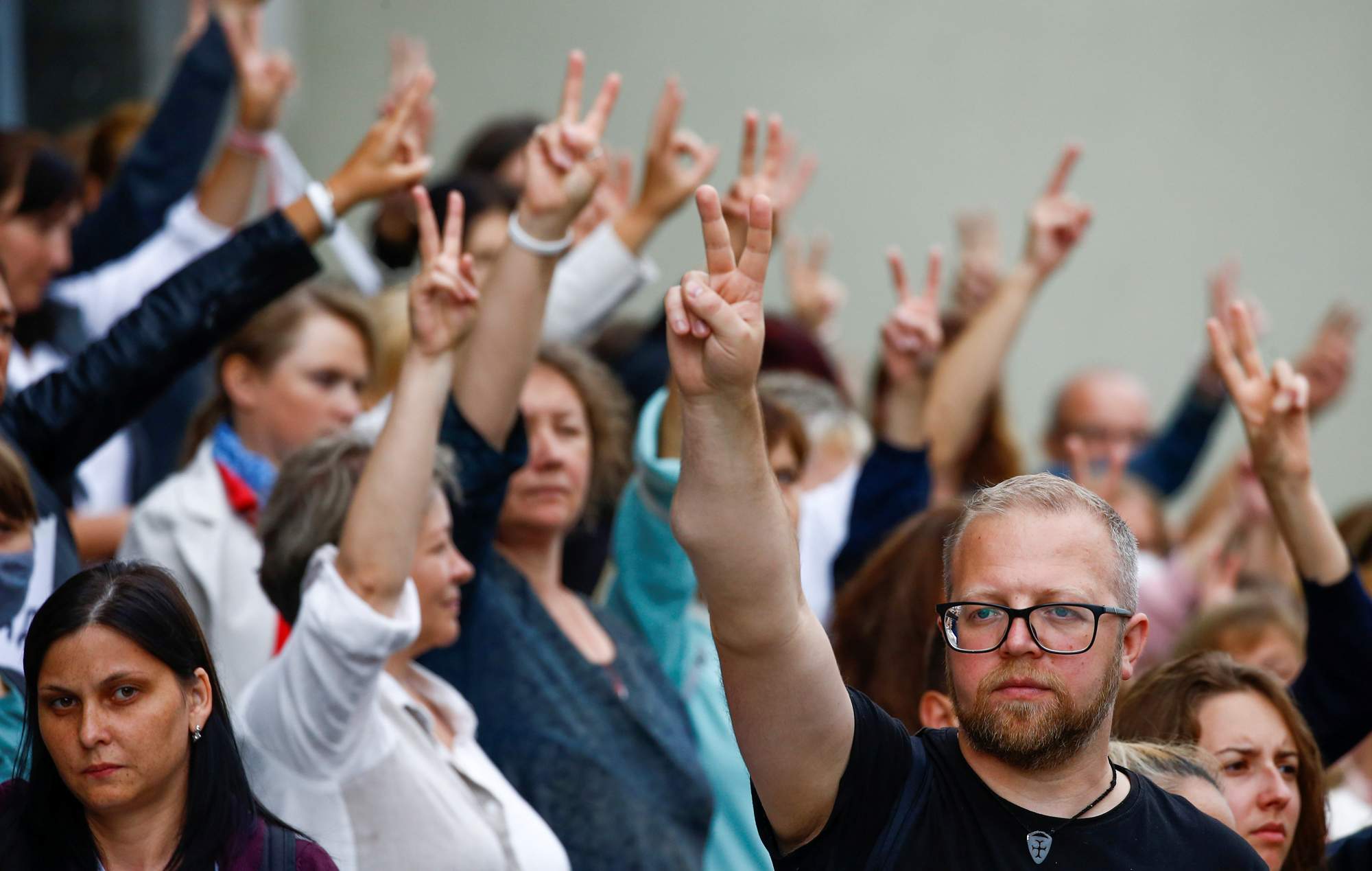
Belarusians protesting against election results near the Ministry of Education in Minsk
Oppressive states often resort to violence or police intimidation to help hasten fatigue. Yet doing so rarely strengthens their position. “The issue is: do they actually win through winning the battle that day?” says Crawshaw. “Do they win the war? History shows us repeatedly that the answer to those questions is no. If you kill 300 people, then probably fewer people will come out the next day. But that doesn’t help you very much in terms of trying to govern the country.”
What’s more, all too often violence can spiral out of control. Nowhere is this bloody lesson more true than in Syria, where Bashar al-Assad’s brutal response to the Arab Spring uprising in 2011 sparked a horrific civil war that has destroyed large swathes of the country, killed hundreds of thousands and displaced millions. Yet even if a violent crackdown on demonstrations doesn’t result in such all-encompassing destruction, it’s still likely to backfire. Not only does it bolster the public’s plight in the eyes of the international community, it can also help to galvanise citizens in their fight against the state.

Law enforcement officers standing guard in the capital during an opposition demonstration
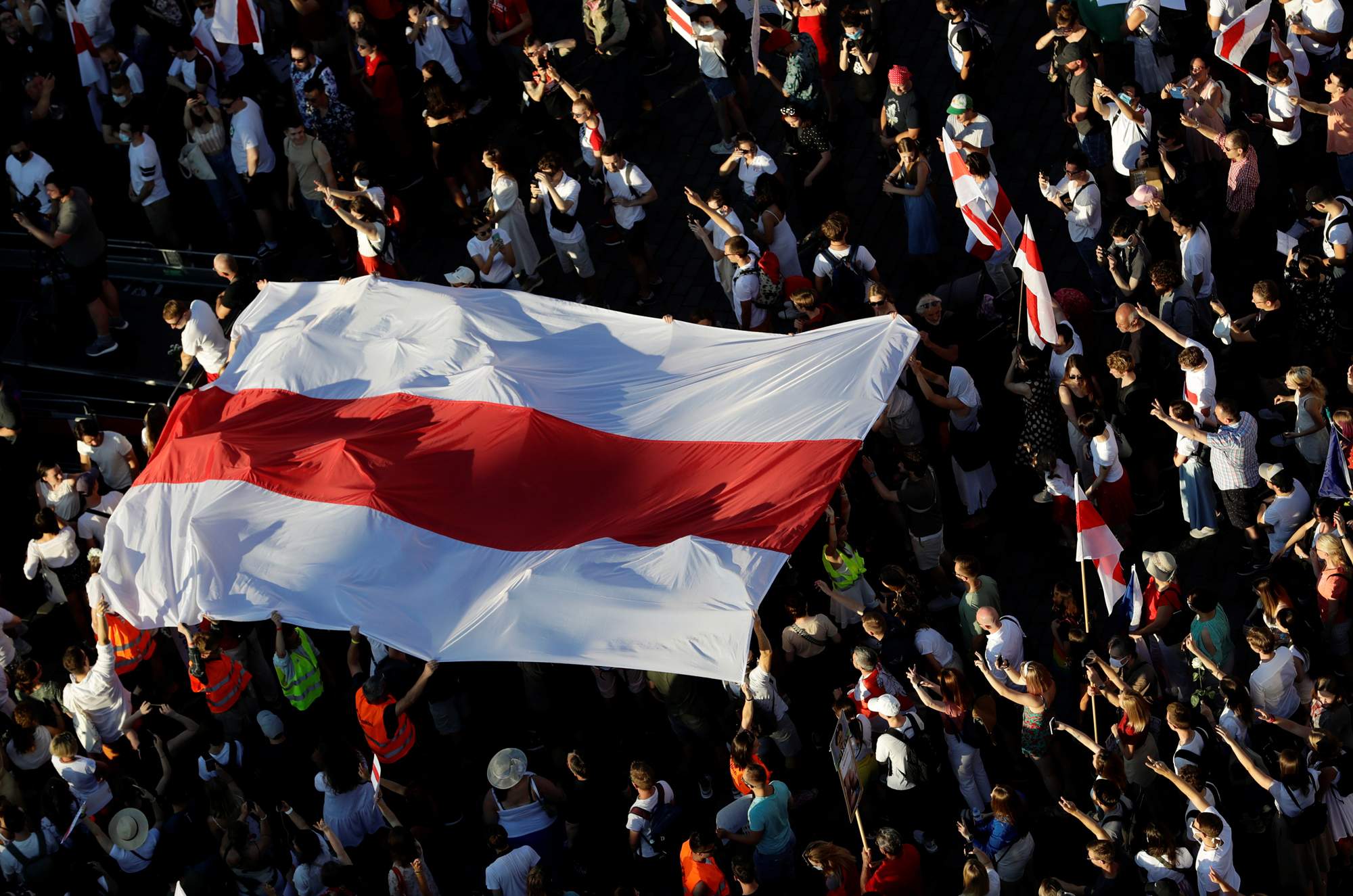
Demonstrators carrying a large historical flag of Belarus during a protest in Prague
Yet the past year has offered repressive states an alternative to violent clampdown. “Whether it’s in Hong Kong or Algiers, coronavirus has been authoritarian regimes’ best friend,” says Tin Hinane El Kadi, an Algerian researcher and political activist. “It has allowed them to have a strong argument to suppress protests and freedom.”
So with all the challenges that revolutions face in overthrowing a government and achieving a successful democracy, is there any reason for those on the ground to have hope? Yes, according to Crawshaw. Even if achieving freedom is still years or decades away, quelled uprisings shouldn’t be counted as failures, he says. “It’s just an unfinished story.” These hurdles haven’t yet had a deterring effect in Belarus, where protesters have continued to take to the street in the face of police violence, the detention of political opponents and a pandemic. As pressure mounts against Lukashenko, the spectre of revolutions’ most formidable hurdle looms ever larger: mistaking overthrowing a leader for overthrowing a system. While seeing a dictator fall might be cause for celebrations, it’s what follows that matters more. In undemocratic regimes, the apparatus of power isn’t a matter of bringing down one leader. Often a former ally is quick to step in; other times a sudden power vacuum sees a revolutionary take charge, only to later become corrupted by the undemocratic power structures that remain. Examples are myriad but Crawshaw points to recent uprisings in Zimbabwe or Egypt as instances where the new leader is just as repressive as the last, if not more so.
Wheel of fortune
Three revolutionaries on the successes and failures of recent uprisings in Algeria, Lebanon and Armenia.
1.
Tin Hinane El Kadi
Researcher and political activist
country: Algeria
revolution: Revolution of Smiles, 2019-2020
“Algeria has been an authoritarian regime, with the military controlling every aspect of life and social life, and since 1999, we’ve had a president in power [who] just didn’t want to leave the office. [In 2019, octogenarian Abdelaziz Bouteflika] was aiming to run for a fifth term. For many people it was a red line: it pushed many of them to the streets in February 2019. It was historic: millions of people [marched] between February and April. But even once the president officially resigned, people from his regime were stepping into power.
I think there are two levels of change. The uprising was successful in achieving its first aim, which was to stop a fifth presidential term. However, that was the only concession the political system was ready to make; real power-holders – the army – let the façade represented by Bouteflika go, while on the other hand keeping power. The core – the heart – of traditional power is very much in control. In that sense we haven’t yet succeeded in really radically changing the system.
Coronavirus has been hard for the movement. But I think the protest movements will resume incrementally. Even though politically, and institutionally, we haven’t yet made any significant gains – except from stopping [another term under Bouteflika] – we will hopefully be able to force the system to make some serious concessions.
We want a civilian representative and legitimate government that would be the result of transparent popular elections. I’m optimistic that things will change.”
2.
Obeida Takriti
Academic and political activist
country: Lebanon
revolution: October Revolution, 2019-2020
“People were not happy with the policies of the government, which were contributing to economic collapse. The protests were a reaction from the people – from all sides, all religions, gathering together – against the ruling authority.
There’s also a change in the discourse: you can hear people in a few parties who are talking about change in the system itself, to move from a sectarian system to a civil and secular one. There are some people who will be resistant because you are proposing something they’re not familiar with. Not every citizen in the country will be happy. And after the pandemic and the explosion in Beirut, people withdrew from the movement because they want to save themselves and their money, and to find a way out. I don’t blame anybody.
I think we are going in the right direction. There are coalitions forming and we are starting from a point where you acknowledge that we’re having an economic collapse; it’s not only about representation. The end phase of our plan is an election; it’s not the first phase.”
3.
Sos Avetisyan
Revolutionary-turned-MP
country: Armenia
revolution: Velvet Revolution, 2018
“We wanted to have a country that is democratic, one that respects human rights. [The president made] constitutional changes to steer the country into the parliamentary republic – which was a way of [having him] remain in power for longer. As a citizen, it was not acceptable for me.
Revolution is not a predictable event. With an increase in the number of the people on the street, it became more possible. Before, the public was sleepy. Once the public was mobilised, the rest was easy. One of the issues that we are facing now is corruption. We had to change the legislation accordingly; corruption was a way of governing. So you need to create effective bureaucracy. We also need to explain to the public that this is an investment in their pocket.”
Images: Reuters pictures


